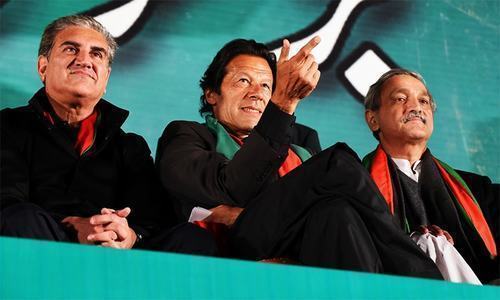
AS of this writing, news is swirling of a ‘mini budget’ about to be presented before parliament in a session that has been postponed from Friday to Monday given Begum Kulsoom Nawaz’s funeral. As of writing, the party has not officially announced the postponement though.
That ‘mini budget’ we are told, includes new taxes worth more than Rs100 billion. That figure is unconfirmed though the fact that a finance bill has been drafted and is ready to be tabled before parliament is confirmed. What can be counted on is that the new finance bill brings more taxes and expenditure cuts with it. In short, demand compression is now set to begin. After this, the attention of the finance team will turn to the external account and charting a course forward to control the current account deficit and arrest the depletion of the foreign exchange reserves. That will be round two.
I say the party is about to end because up until now it has been a bit of a free-for-all in the policy space. The new government has touted austerity one day, fended off allegations of excess the next. It has thrown in its lot with an ill-conceived scheme for raising funds for dams, and angered its Chinese guests by suggesting, in on-record remarks by an adviser to the prime minister, that all projects in the China Pakistan Economic Corridor will need to be put on hold for a year while a comprehensive review is undertaken to ascertain their impact on local industry. The same day those words were published they had to be walked back in a sheepish clarification that the adviser was “quoted out of context”. I wonder what context would make those words more palatable to our Chinese guests.
Thus far an impression has held the field that the party has no plan, no direction, and the shots are going to be called by glorified con artists who are fooling the prime minister into thinking that he can turn the economy around on the strength of emotional appeals and witch hunts alone.
Harnessing animal instincts for policy purposes is deadly stuff.
The finance minister strenuously denies this impression though. The prime minister is under extreme pressure from his constituents and fans to make an appeal to overseas Pakistanis, he says. “There is a strong feeling among overseas Pakistanis that an opportunity has come to contribute for the betterment of their country,” he tells me, “and we have received thousands of messages from them saying appeal to us for a contribution.”
So a mode of contributing had to be decided, he continues. “I was opposed to a generic appeal” because they will “disappear in our current account deficit” and after three months those making the contributions will ask “where did our money go”. Hence they came up with the dam fund, because at least this way the contributions can be received and remain safe and visible until a way is found to put them to good use. “I’m fully supportive of this appeal,” he says, but adds it would be wrong to count only on the funds from this donation drive to start work.
“There is no action that in my view we need to take that is not being taken,” he emphasises, adding that the prime minister is solidly behind him, as well as the “sensible economists” of our time, “barring one or two”.
Economics is about emotions as well as numbers, he underlines, referring to a couple of economists who said as much. “The business cycle begins in the minds of people,” he quotes, and goes on to say that harnessing these “animal instincts” is important along with the more mundane policy measures.
Fair enough. But a few questions arise. First of all, harnessing animal instincts for policy purposes is deadly stuff. This was the stock-in-trade of the 1970s style Third World populist leaders, who presented themselves as the embodiment of the people’s aspirations. They were driven by the tiger of popular aspirations as much as they rode it. In time such a leader risks becoming a prisoner of his own popularity, afraid or otherwise unable to take any step that courts popular anger. And popular sentiments, or “animal instincts” or as John Maynard Keynes called them, “animal spirits” are woefully ill informed, emotionally combustible and easily misled.
Given how quickly Imran Khan changes his mind when confronted with loud opposition, however slim the numbers upon which it rests, this explanation of things does not calm the worries that economic management in a time of approaching crisis will find a firm hand on the tiller. Finance Minister Asad Umar has his job cut out for him, because he can never know what these “animal instincts” that appear to be guiding Imran Khan will be telling him tomorrow.
The good news is that he supports all the steps to curtail money laundering and recover looted wealth, but does not see them as substitutes for policy making. “It would be wrong to not take the fiscal adjustments or the steps needed to deal with the crisis in the hopes that the money recovered from this effort will be enough.”
So now the real game begins. Once we see the actual finance bill, and the kind of revenue measures envisioned within it, we will have a clearer idea of the policy direction that the party has brought. After that comes the external sector, then comes the circular debt and the gas pricing reforms as well as the public-sector enterprises. Their plate is far too full for too much voodoo, and letting “animal instincts” call the shots must also end at some point.
It is when the party leadership can stand up and own painful policy measures, tell the people that power and fuel prices must rise, that inflation must increase and the rupee must fall, that unemployment will have to increase, that the party would have ended and the real game of running the country begun. One wishes them all the best.
The writer is a member of staff.
Twitter: @khurramhusain
Published in Dawn, September 13th, 2018














































